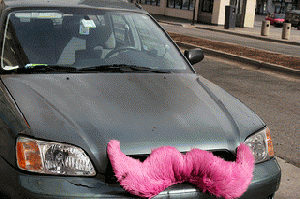For the last year or so, one of the tech world's most entertaining sideshows has been the hearings held by the California Public Utilities Commission over how to regulate taxi-like "ridesharing" or "transportation network carrier" companies such as Uber, Lyft, and Sidecar. The process took a dramatic turn this week when the Commission issued a proposed ruling which included an admission that, by allowing these services to operate, the PUC has placed consumers in danger.
The statement follows an overview of objections to the PUC's past rulings made by the insurance industry. Insurers, represented by the Personal Insurance Federation of California (PIFC), told the PUC back in January of 2013 that "ridesharing" vehicles are providing a "livery service" and so would not be covered under the standard insurance policies held by private drivers. To quote the Proposed Decision:
"We are left, then, with the probability that subscribing TNC passengers will be riding with TNC drivers that carry personal automobile insurance coverage that is inapplicable." (Page 16 of Proposed Decision.)
Instead of immediately addressing this insurance gap, however, the PUC has proposed a continuation of the decision-making process, with expanded insurance requirements to be considered in the coming months. The question thus arises -- what about right now? The state PUC appears to be willingly and knowingly failing to protect consumers of these services. If a TNC vehicle causes an accident today -- and the driver's insurance is denied -- the State could be on the hook. In fact, this bald admission of irresponsible governance means California has been wantonly failing to protect consumers and the public from since first allowing these under-insured services to operate back in early 2013.
Will consumer watchdogs step in? The California PUC's coddling of companies like Uber and Lyft is only the latest example of government bodies getting overly cozy with the industries they are meant to be regulating. It is time that regulators remembered that it is consumers, not corporations, they are charged with protecting.





